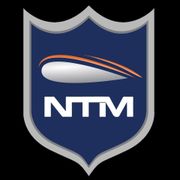
When it comes to business cybersecurity, IT support teams often deal with computer viruses. Aptly named for the ability to spread and infect files, software, and other aspects of a system, a computer virus is detrimental to any business. If caught early enough, the problem may only affect one computer; if not, it could spread to the entire network. While anti-virus software and expert support can dramatically reduce their spread, understanding the distinction between the different categories can help everyone stay vigilant.
What Kinds of Viruses Infect Computers?
1. Macro
Macro viruses are perhaps the most common. They’re often circulated via phishing emails—in which a criminal pretends to be a legitimate organization—primarily through attachments, like Microsoft Word® and Excel® files.
These attachments contain code that can alter and corrupt the content of the files. If IT support hasn’t installed anti-virus software to scan for malicious code, merely opening the attachment could activate it.
2. File Infectors
Similar to macro viruses, file infectors can overwrite and corrupt files. However, they only affect executable files, such as programs with the .exe extension.
There are two types of file infectors: direct action and resident, with the latter being more dangerous. The reason is that direct action infectors generally make files within a folder inaccessible, whereas resident infectors can hide a computer’s random access memory (RAM) and infect a wide range of other system files.
3. Boot Sector
 Often spread via email attachments and USB drives, these viruses latch onto the master boot record (MBR) of a hard drive.
Often spread via email attachments and USB drives, these viruses latch onto the master boot record (MBR) of a hard drive.
These sections are responsible for starting up the operating system, so if there’s a boot sector virus, a user will not be able to launch their computer. Infector viruses are not as prevalent as they once were, and most are easily detectable by anti-virus software.
4. Web Scripting
Unlike the first three types, web scripting viruses are not spread through email. Instead, the code is hidden online, masquerading as links in a comment on a blog or news site. Once clicked, these links often download malicious software designed to steal any sensitive information shared within the browser.
5. Browser Hijackers
Like web scripting viruses, these types primarily affect online access. If activated, they’re designed to reroute your browser to a page that looks legitimate but forces one to pay for access. They may also cause constant pop-up ads.
When your business needs protection from computer viruses, choose National Technology Management. For more than 20 years, this Bingham Farms, MI, team has provided quality cybersecurity and IT support for companies throughout the greater Detroit area. Their SafeSecure® service is tailored to address the threats unique to your business and industry, so you can trust you’ll get the protection you need. Learn more about this managed IT services provider on their website or by calling (248) 658-0830.
About the Business
Have a question? Ask the experts!
Send your question

